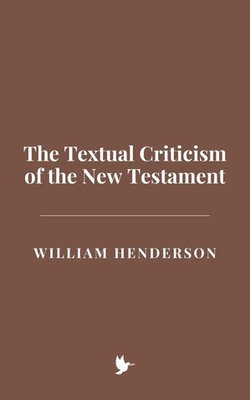Textual criticism, as a field of scholarly study, traces its roots back to the earliest efforts to preserve and transmit the written word. The origins of textual criticism in the context of the New Testament are tied to the practical need to understand, preserve, and restore ancient Christian writings that were transmitted across centuries. The New Testament, a collection of books composed between the mid-first and early second centuries, has existed in a vast number of manuscript copies, none of which are original autographs. This reality makes textual criticism indispensable, as it seeks to determine what the original text may have been, addressing the challenges of copying errors, intentional modifications, and the natural drift of language and style over time.



Share This eBook: